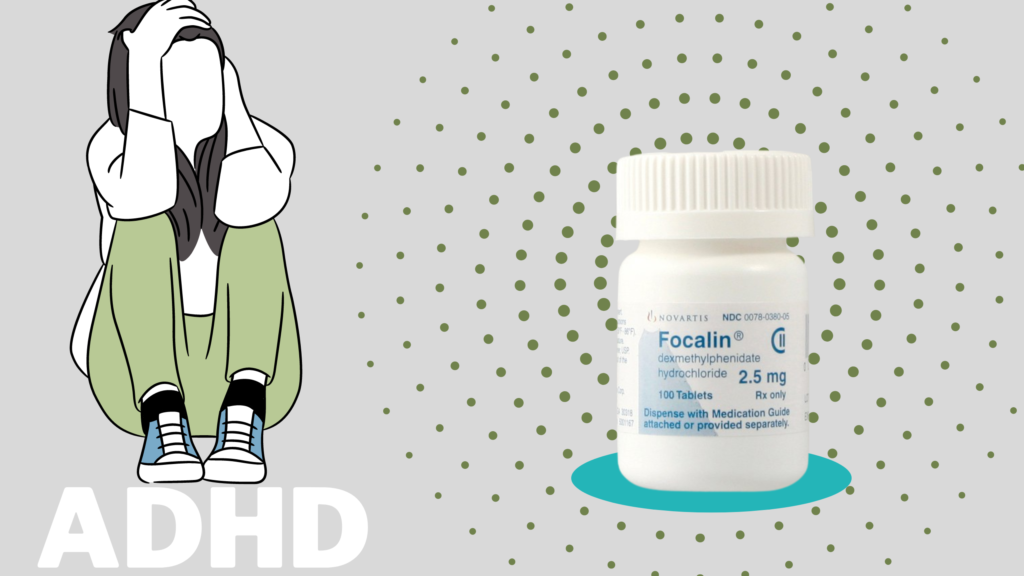The Rise of Focalin Generic ?
The Rise of Focalin Generic and What It Means for You!
A tectonic shift is taking place in the complex world of drugs. Be prepared for the turbulent emergence of Focalin Generic is not just a ripple in the ADHD treatment scene; it is a tidal wave of change. You might wonder what it means for you. Hold on to your seats, because we’re about to plunge headfirst into a world of mysteries and astonishments that will send your mind spinning with intrigue.

A Change in Approach to ADHD Treatment
Imagine a scenario in which the Focalin Generic is posing a serious threat to the traditional pillars of branded drugs. “Change is the only constant,” as the saying goes, and in the world of ADHD therapy, this change is equally thrilling and perplexing. We’re talking about a transformation that’s altering how we view medicines – a deep upheaval comparable to a phoenix emerging from the ashes of conventional pharmaceutical conventions.
Mastering the Mysteries of Generics
I love generics! The phrase itself has an enigmatic quality that conjures up pictures of twins competing for attention in a world of chemical mystery. The underdog in this contest, Focalin Generic, is not merely a copy. It is a competitor, and a tough one at that, with the power to alter treatment landscapes and shatter preconceptions. Don’t let the word “generic” mislead you, though. This is a brilliant strategic move that is causing a stir for all the right reasons; it is not a cheap replica.
The Solution to the Financial Mysteries: Cost-Effectiveness
Hold onto your wallets because Focalin Generic is turning the financial story on its head in addition to rewriting the therapeutic script. Be prepared for an extraordinary paradox: Focalin Generic’s affordability. Yes, you heard correctly. As the curtain rises, a spectacle where patients might save a lot of money without sacrificing quality is shown. Perhaps a Rubik’s Cube of economic reasoning, but a reality that is upending the way that traditional medicine is priced.
A Concerto of Safety and Efficacy

Let’s address the efficacy and safety issue head-on. The question of whether Focalin Generic can keep up with its branded counterpart has been resonating in the thoughts of many. The response? A loud “Yes!” crescendo is heard. Focalin Generic’s performance is categorically declared to be far from a dissonant note; rather, it is a harmonious melody that rivals the original composition in both efficacy and safety, according to the symphony of studies, trials, and research.
Assurance's Chorus of Expert Voices
You may be asking yourself, “Can I trust this symphony?” at this point. Here come the authoritative voices—the masters of medical knowledge adding their certainty to this revolutionary movement. These distinguished individuals, these experts on chemical subtleties, are not merely promoting Focalin Generic; they are leading the charge for change and announcing with authority that this surge is not just a passing fad but a seismic transformation that will endure.
The Kaleidoscope of Tomorrow
What is ahead as we navigate this complex maze of transformation? The kaleidoscope of the future promises a dynamic environment where Focalin Generic is not just a disruptive force but also a glimmer of hope for people looking for efficient therapy without going broke. The story has changed, the paradigm has changed, and you, my reader, are about to make a choice that could completely alter how you manage your ADHD.
As the curtain closes on this thrilling exposé, keep in mind that The Rise of Focalin Generic is a Story of Empowerment, Choice, and Transformation, not Just a Tale of Pharmaceutical Evolution. Will you embrace the puzzling, emerge from the cage of tradition, and seize the opportunities that lie ahead? The decision, however perplexing it may appear, is yours to make now that the stage has been set and the spotlight has been turned on.







